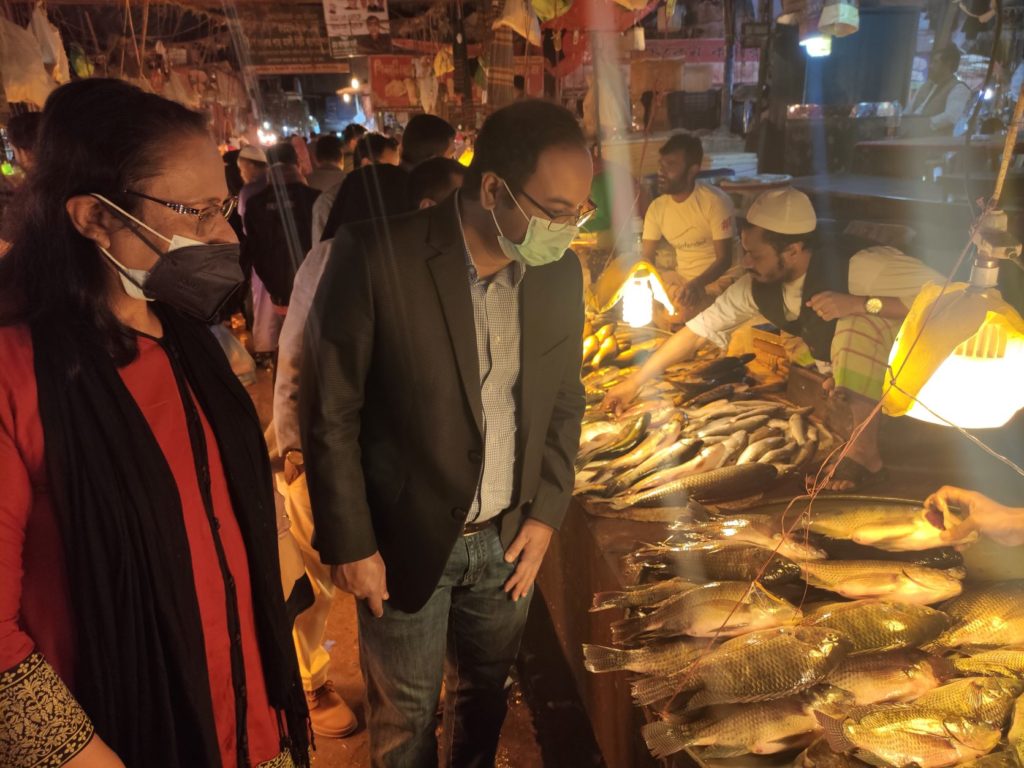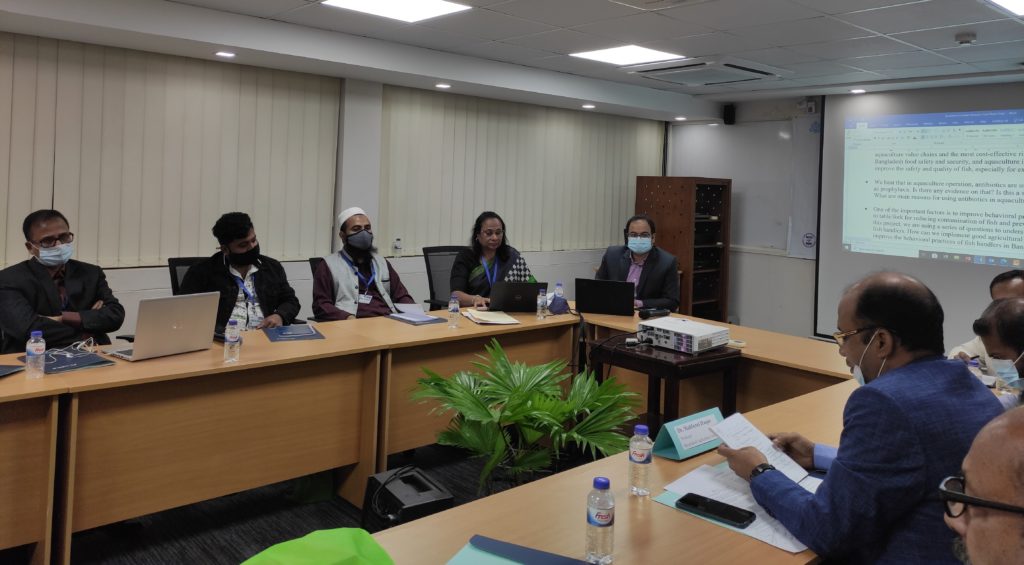
Fish, which make up 80% of the animal protein consumed by the people of Bangladesh, is the most culturally preferred food after rice. Not surprisingly, fish farming (aquaculture) is currently one of the most important sectors of the national economy. Problematic to the system is that the country’s aquaculture industry has suffered from issues with food safety due to microbial contamination that has proven harmful to both the health of domestic consumers and the country’s access to international markets.
“Apart from primary contamination in ponds, fish can be contaminated in various stages of the supply chain,” said Dr. Salina Parveen, a professor of food microbiology and safety, environmental microbiology, and molecular biology at UMES. “At the retail markets, most buyers take the freshly bought fish to a merchant who cuts and cleans the fish, often under unhygienic conditions. Because of the large number of actors, it makes it difficult to regulate and ensure the safety of the product at each step of the process.”
Parveen, a native of Bangladesh, is involved in a collaborative three-year project to assess the entirety of the supply chain of the two most commonly consumed fish, tilapia and panga, for contamination with major foodborne pathogens. Stakeholders’ behavioral practices in each stage of the supply chain will be analyzed to see how they contribute to the contamination of fish at the consumers’ point, she said. The data generated from the project will contribute to the development of a quantitative microbial risk assessment model to identify critical points for implementing future intervention strategies—an important step toward addressing food safety in aquaculture systems in the country.
The study, “Identifying Major Sources of Fecal Pathogens in Bangladeshi Aquaculture Value Chains and the Most Cost-Effective Risk Reduction Strategies,” is funded through Mississippi State University’s Feed the Future Innovation Lab for Fish and the U.S. Agency for International Development. Dr. Mohammad Aminul Islam of Washington State University is the project director. Other collaborators include the International Centre for Diarrheal Disease Research-Bangladesh, the University of Maryland’s Joint Institute for Food Safety and Applied Nutrition, the Ministry of Fisheries-Bangladesh, the University of Dhaka and the U.S. Center for Disease Control and Prevention.

Parveen visited Dhaka, Bangladesh at the end of 2021 along with collaborators to organize a meeting introducing the project to stakeholders. The research team did site visits, including the Ministry of Fisheries, the Bangladesh Food Safety Authority and the Bangladesh Livestock Research Institute to discuss issues related to sustaining and extending project activities.
While there, Parveen was also an invited speaker at the Bangladesh Society of Microbiologists’ annual conference and visited the Biman Flight Catering Center to discuss food safety. She is one of the founding members and president of the Bangladesh Association for Food Protection, North America—a chartered affiliate of the largest association for food safety professionals across the globe, the International Association for Food Protection.

